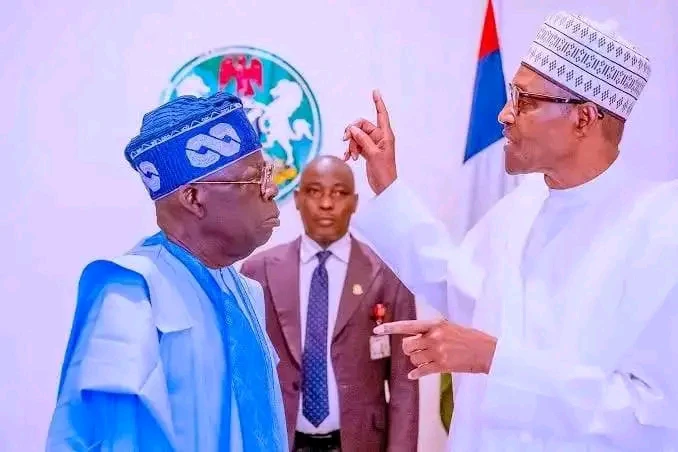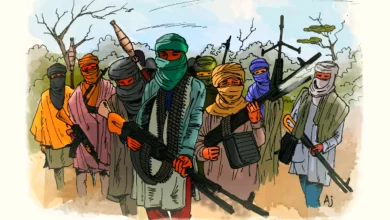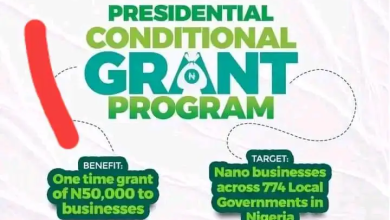Empowering Northern Nigerian Youths

Empowering Northern Nigerian Youths
Young minds gather in the heart of Northern Nigeria, surrounded by vibrant landscapes, exchanging stories of aspiration and optimism. They share the desire to lead, innovate, and shape a better future. However, strands of frustration run through their stories as they become locked in a cycle in which opportunities appear limited and avenues to achievement are veiled by the influence of established leaders.
A dialogue takes place across generations. Elders, rooted in tradition, give advice gleaned from their experiences while remaining unwilling to relinquish control. They emphasize the significance of respect and sustaining long-standing beliefs.
However, beneath these words is apprehension—fear of change, loss of control, and uncertainty about the future. Against this backdrop of hope and dread, a persistent impediment to growth and inclusive governance emerges the “yallabai” attitude.
This cultural inclination describes established leaders’ reluctance to coach and empower the next generation. It demonstrates a purposeful desire to retain power and influence, with leaders choosing to stay in their positions rather than delegate responsibility to younger individuals.
The maintenance of this mindset stifles the development of youth leadership and creates a circle of dependency in which the younger generation serves the interests of established leaders rather than being empowered to lead for themselves. Northern Nigeria is at a crossroads where long-held values clash with the needs of modern society.
Historically, Northern Nigeria has been characterized by hierarchical power structures, with authority and influence often concentrated within specialized groups. Within this atmosphere, the “yallabai” attitude has developed, creating a culture of exclusivity and aversion to change. Established leaders, wary of giving up authority, have been hesitant to mentor and encourage younger people, fearing a threat to their standing and influence.
Furthermore, cultural norms and traditional practices have exacerbated the prevalence of the “yallabai” mentality. Respect for elders and obedience to authority are deeply embedded norms in Northern Nigerian society, therefore younger people are hesitant to challenge the existing quo or take on leadership roles. As a result, this cultural dynamic has fostered a lack of intergenerational conversation and collaboration, strengthening the barriers to young empowerment.
The “yallabai” mentality has a deep influence on institutional structures, altering their dynamics and impeding young people’s socioeconomic growth. Institutions frequently favor the maintenance of current power hierarchies over the promotion of meritocracy and equal opportunity, reflecting cultural norms.
This institutional prejudice not only maintains exclusivity but also creates systemic hurdles to the growth of young people. Within these frameworks, possibilities for youth leadership and participation in decision-making processes are limited, as existing leaders prefer to maintain power rather than develop new talent.

As a result, young people’s goals are suppressed, and their potential contributions to society are undervalued, leading to sentiments of despair and disenfranchisement.
Addressing the deeply ingrained “yallabai” mentality in Northern Nigeria and its negative influence on youth empowerment necessitates various solutions. To begin, it is critical to raise awareness about the negative consequences of this thinking. Educating both young people and established leaders on the value of mentorship and inclusive leadership practices is critical for overcoming prevailing patterns.
This awareness-raising effort should go beyond formal education and include community-based efforts and grassroots organizations aiming at influencing societal views. Additionally, encouraging intergenerational communication and collaboration is critical.
Establishing platforms for young people and established leaders to exchange ideas, share experiences, and collaborate on similar goals helps to bridge the generation gap. Diverse perspectives and talents from all walks of life may be leveraged to generate positive change through meaningful involvement and mutual respect. Implementing real actions to promote youth empowerment, in addition to raising awareness and encouraging intergenerational discourse, is critical.
Mentorship programs, leadership development efforts, and skill-building opportunities can provide young people with the tools and support they need to traverse difficult sociopolitical settings and reach their full potential. By investing in the next generation of leaders, we not only ensure the continuation of success but also open up new avenues for innovation and development.
Simultaneously, institutional reforms are critical in breaking down systemic barriers and fostering a climate conducive to youth involvement and empowerment. Policies should be amended to enhance openness, accountability, and merit-based promotion in government institutions, educational systems, and community organizations. Through our united efforts, we can eliminate structural barriers and promote equal opportunities for all, resulting in a more equitable and inclusive society in which every individual has the opportunity to succeed.
As we consider the trip ahead, it becomes clear that changing deeply rooted societal norms requires not only unwavering devotion but also a generous measure of patience. While the recommended remedies lay out a path forward, altering these deeply rooted views will take time. It requires a consistent and collaborative effort from all sections of society, with young people playing an important role as change agents.
In the face of obstacles and setbacks, unflinching determination becomes critical. Embracing this road with patience and optimism, every small step forward, no matter how seemingly insignificant, helps to achieve the bigger objective of creating a more inclusive and empowered society.
In a place where the “Yallabai” mentality frequently impedes youth empowerment, embracing solidarity and teamwork is even more important. Northern Nigeria’s young may harness their collective potential to usher in a brighter and more affluent future for themselves and future generations by banding together and rallying around shared goals.
While each child has distinct talents and desires, we can only genuinely impact significant change in our communities if we work together and support one another. Drawing on Helen Keller’s timeless wisdom, let us acknowledge the transformational potential of collective action: “Alone we can do so little; together we can do so much.”







